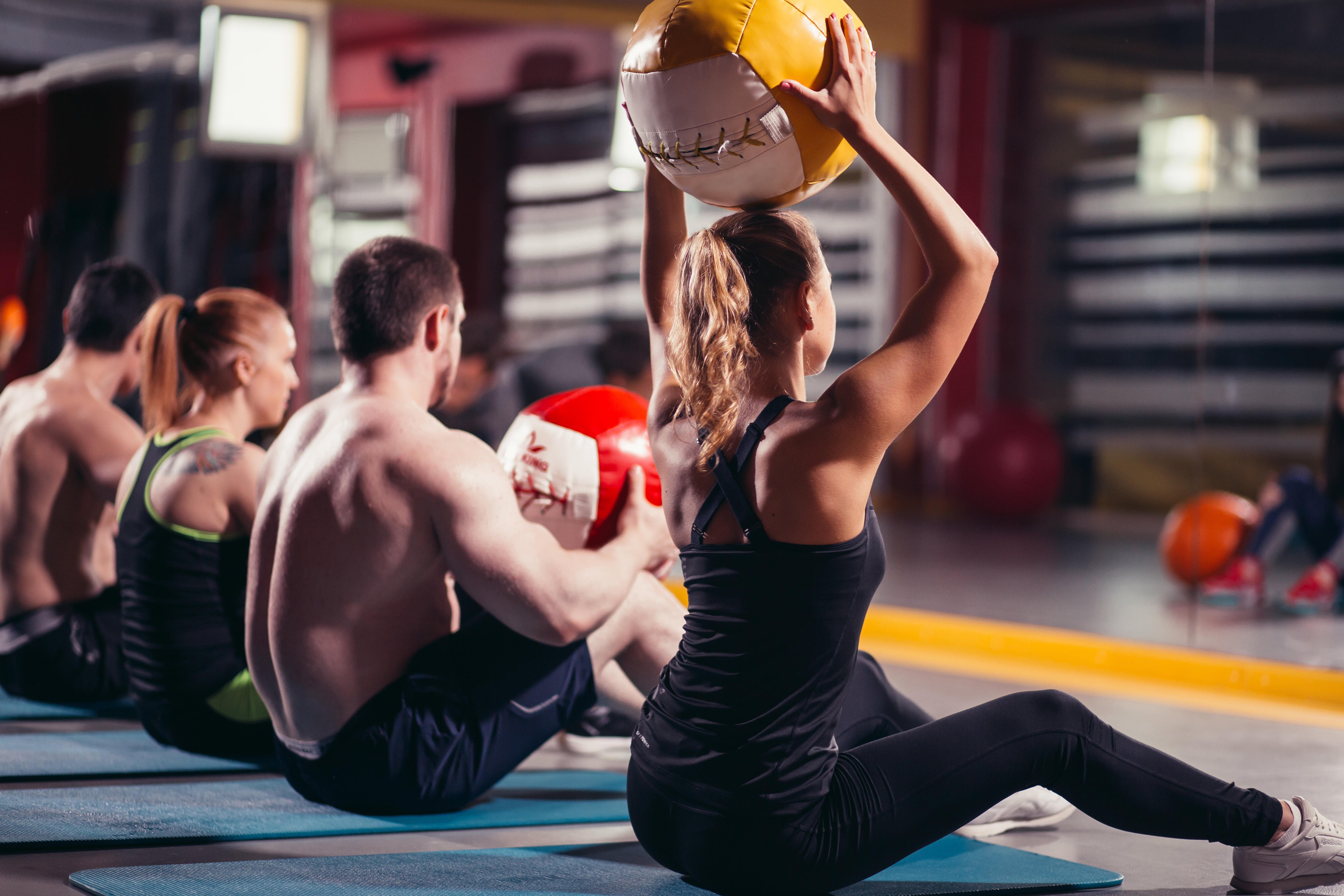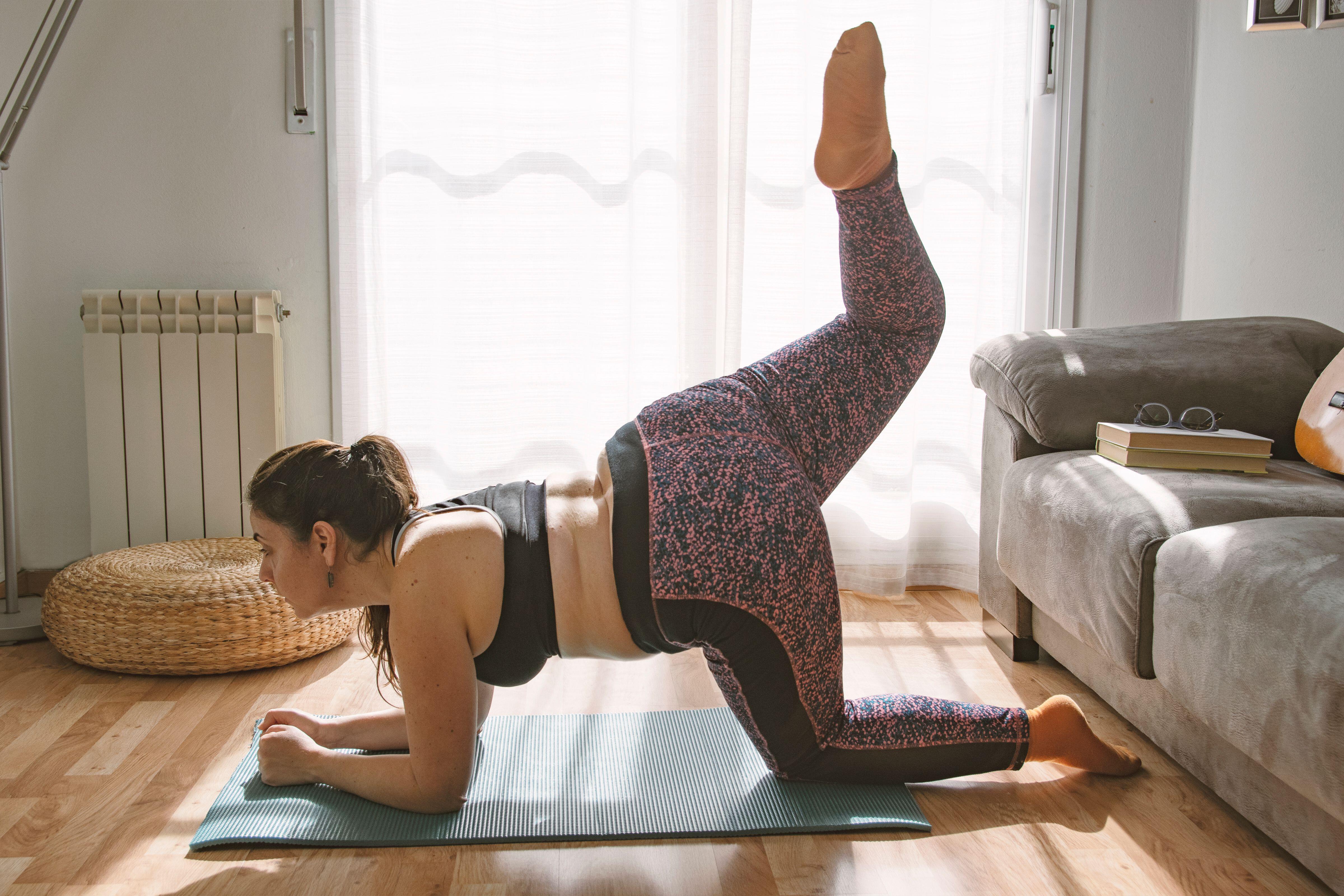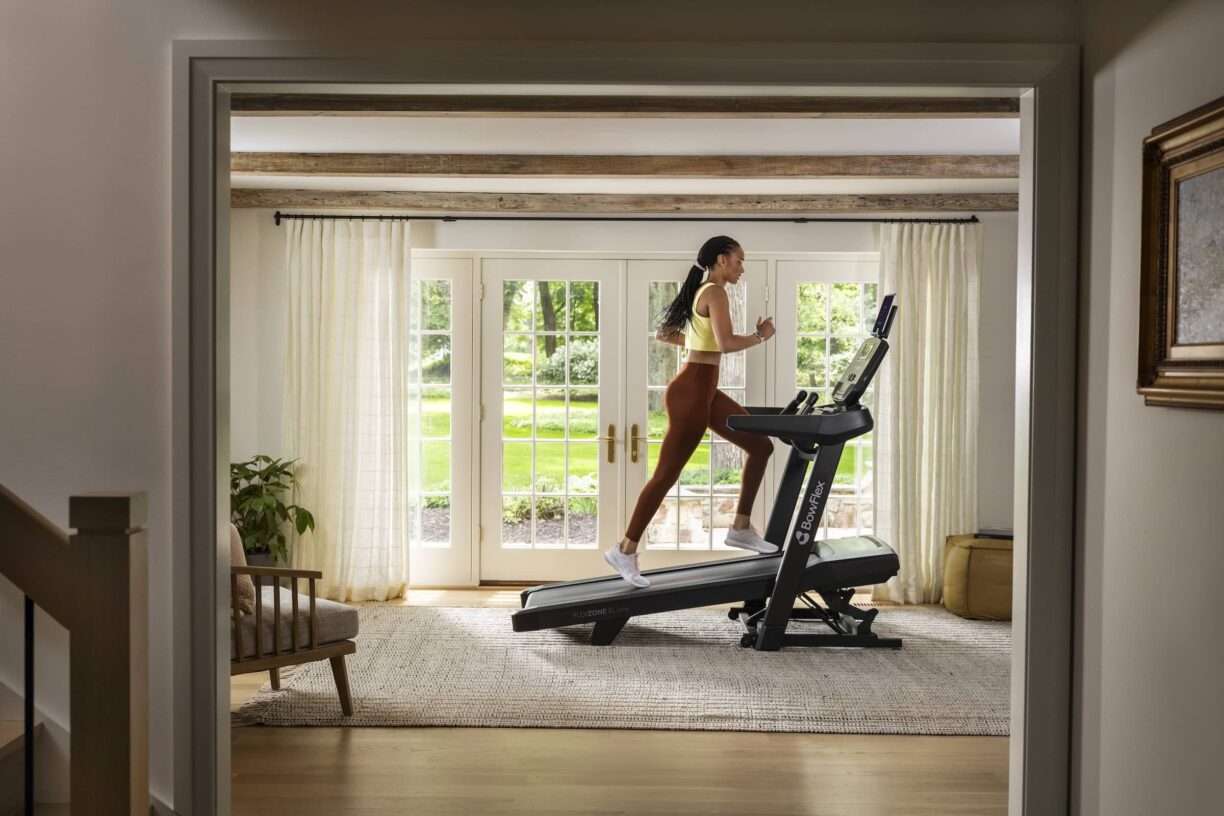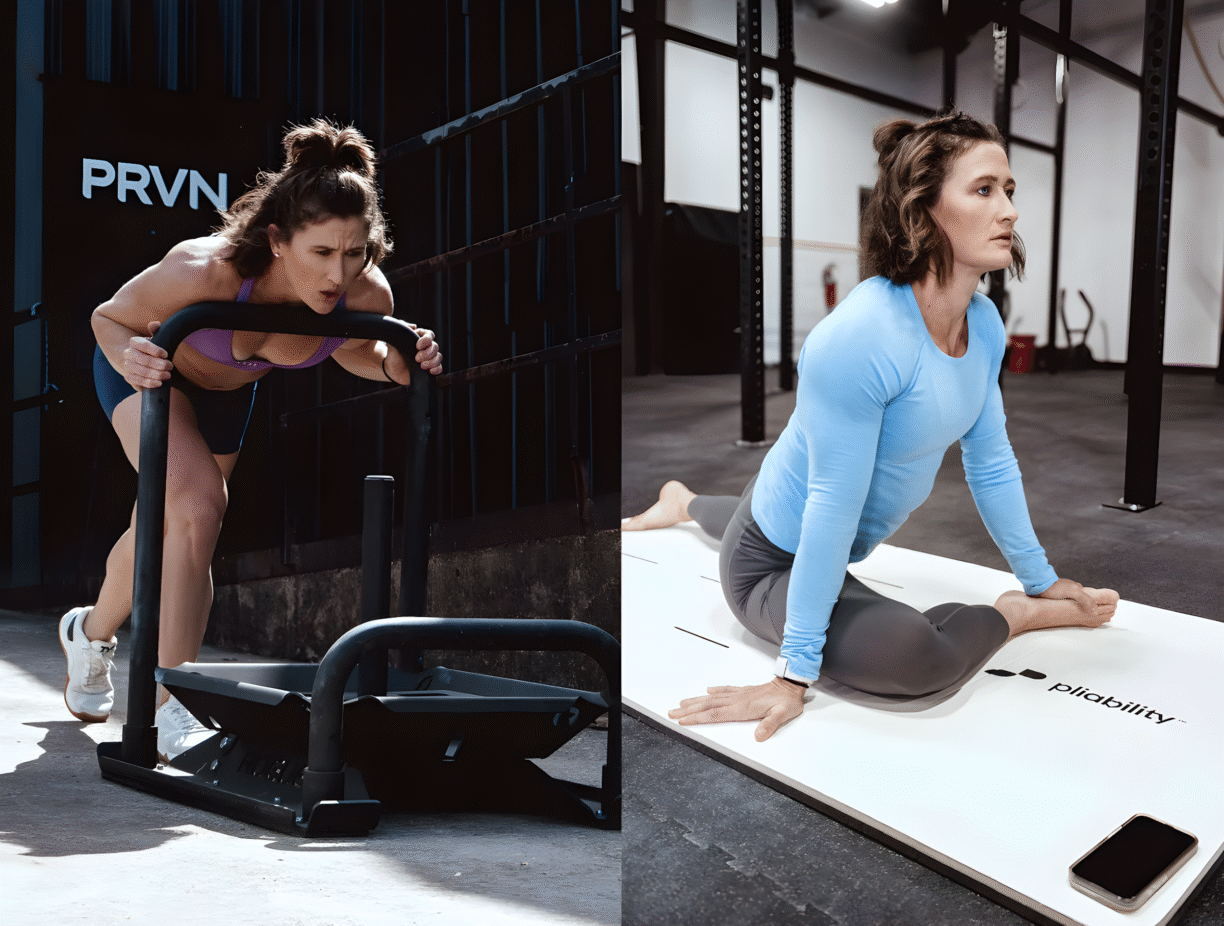Struggle to fit workouts in during the week? Good news: researchers in the US reckon doing all your exercise at the weekend might be enough.
It’s generally recommended we aim for at least 150 minutes of moderate-intensity exercise a week. This new study, published in the JAMA Internal Medicine journal, tracked 350,000 people over 10 years – and found it was the type and duration of exercise that matters, not whether it was achieved via a series of shorter workouts or just one or two weekend sessions.

Of course, you might really value your weekday workouts – there’s a lot to be said for a Wednesday swim or yoga sesh. But it’s reassuring to know our fitness won’t suffer if we need to wait ‘til the weekend.
So, how can you get the most out of weekend workouts?
Keeping active in the week is still important
First off, even if you only do ‘proper’ workouts at the weekend, movement through the week is still important – so factor in regular walks and desk breaks.
“Whilst weekends might provide us with the time, freedom and energy to move our bodies in a more intense way, it’s really important we aim to do what we can throughout the week, to ensure we stay happy and healthy,” says EvolveYou’s lead trainer Krissy Cela.
“Even if we can’t move to the same intensity, moving our bodies and staying active will ensure long-term health and happiness.”
Think about training smart
“If you’re tight for time and can only train on the weekend, it’s still possible to get to your goals by training smart and eating well,” says Sophie Grace Holmes, personal trainer, nutrition coach and cystic fibrosis advocate. “Utilising time efficiently is the key to success.”
Think about incorporating cardio, and strength and conditioning, so you’re getting the full range of benefits – supporting cardiovascular health and your joints, bones and muscles.
For example, Holmes suggests “getting up early on a Saturday to hit the gym for a strength and conditioning workout, followed by an afternoon session such as a long walk. Then Sunday could be a long bike ride or a run”.
Physiotherapist and Pilates instructor Helen O’Leary, director at Complete Pilates, says: “The intensity of exercise is down to your current fitness. Ideally, we want to get your heart rate up, so you breathe harder. For some, this could be a fast walk, jog, or a cardio class in the gym.
“You also want to add in some resistance training. We recommend this should be adding some weights – you can get some kettlebells or dumbbells and do a simple home circuit that includes all the major muscle groups, for example: squats, split squats, RDL (Romanian deadlifts), lunges, step-ups, bench press, overhead press. If you don’t want to add in weight, then use resistance in a different way,” she adds.
Maximise your sessions

How to make weekend workouts work harder? “To get in a good session, make sure your workout is at least 45 minutes – this allows time for all your changeovers in between exercises,” says Cela.
“Focus on compound movements, as these provide the biggest ‘bang for your buck’ – exercises like squats, lunges, push-ups and deadlifts.
Select a weight that challenges you – this is really important if you want to improve your strength and fitness – yet remember to always execute the correct form.
Use supersets and tri-sets, as these are a fantastic way to add volume and to make your workouts more effective in a shorter space of time.
“Finally, add in some sort of sprints at the end of your workout, to improve your heart and lung health. The best thing about intervals is that they only need five-10 minutes for you to reap the benefits.
Top tip: Aim to go all out on the treadmill or rower for 30 seconds and rest for 30 seconds, repeat for five-10 minutes! I promise it’s harder than it sounds…”
Mix it up
You could hit your 150-minute target in a oner – but adding a mix of activities, scenery and social elements could keep things interesting.
As an example, O’Leary suggests: “Wake up and do a strength workout before breakfast (45 mins). Organise to meet with a friend for a brisk walk and lunch (one hour).
Do a 20-minute stretch session before bed to help you relax and also calm your body down, so you sleep better (20 mins). [Then Sunday] wake up and go for a run or cycle/spin to get your heart rate up (30 mins).
This hits your 150 minutes and if you’re feeling brave, you can tack on a Pilates class to get your core firing as well.”
Make a day of it outdoors
“The nice thing about changing up the activity over the weekend is it can also be a sociable occasion and encourages you to get outside,” says O’Leary.
A hike or bike ride can hit those cardio and conditioning targets, as well as all that feelgood time outdoors in nature. Or, as O’Leary adds: “Why not get out on a paddleboard or kayak?
This gives you all the benefits of being outside, but SUPs also challenge your balance and core strength, whilst giving you an upper body workout, as the water acts as resistance.”
Prioritise warm-ups
“Remember to always include a good 10-minute warm-up and cool-down to get your body ready to exercise and aid recovery – especially as it would be an intense weekend,” says Holmes.
“There’s nothing better than finishing an active weekend feeling energised and ready to start the new week feeling your best.”

O’Leary agrees: “Generally, a class will include [a warm-up]. If you’re doing exercise on your own, try doing the first set with less weight, or even body weight to get yourself warmed up.
Try a few squats, calf raises and lunges before you run or cycle, and in your brisk walk, build up the speed rather than heading out the door at a sprint. Ending the day with a stretch session will actually help prepare your body for sleep, as well as helping it recover,” O’Leary adds.
Another suggestion, says Cela, is to mix in “an at-home yoga or barre session. These are great to lengthen, strengthen and mobilise your body, helping you target muscles that are sometimes left neglected, and to stretch out from your busy week.”





